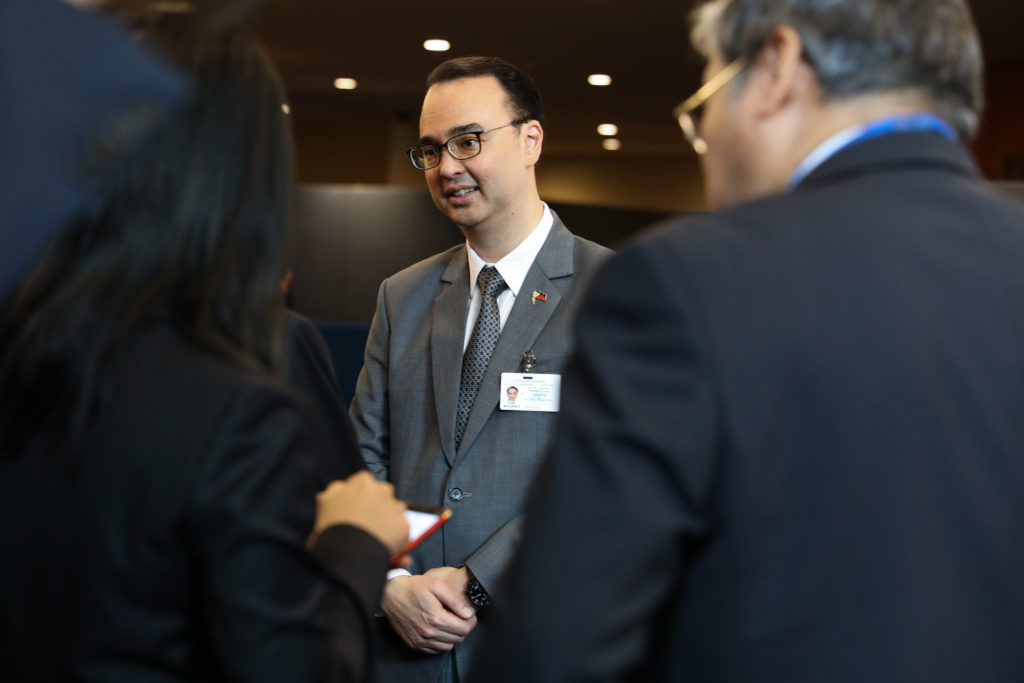
Foreign Affairs Secretary Alan Peter Cayetano FILE PHOTO / MALACANANG
The Philippines will reject “all kinds of aid” from the European Union (EU) to give the 28-member bloc no excuse to meddle in the country’s internal affairs, Foreign Secretary Alan Peter Cayetano said on Thursday.
Cayetano said he would formally notify the EU delegation’s ambassador to the Philippines, Franz Jessen, about Manila’s decision following President Duterte’s vitriolic attack on Wednesday against the EU over criticisms of his bloody war on drugs.
“The point of the speech of the President last night was if the grant has strings attached, you (the donor) can meddle in our politics. It’s more damaging than helpful (due to the) sovereignty issue,” Cayetano told reporters.
He said EU grants were “one-sided” since donors could unilaterally end the grants and dictate conditions.
Other countries like India, China, Russia and Japan gave grants without conditions and many US grants had “no strings attached,” he added.
He said “a number of Cabinet members” also believe that such grants give donors “the legal authority to meddle” in the country’s internal affairs.
Cayetano said he was unaware of new EU grants in the pipeline and he could not confirm Mr. Duterte’s claim of a supposed grant from the United Kingdom amounting to about $18 million.
Duterte not apologizing
Incensed by last week’s visit by a foreign delegation, including several European parliamentarians who denounced extrajudicial killings in the antidrugs campaign, Mr. Duterte threatened to cut ties with the EU and send all their ambassadors home.
Duterte later said he was not satisfied with the clarification of the EU delegation in the Philippines that it was not involved with that foreign mission.
“The President is not apologizing because he believes there are certain elements of the EU that are creating the environment of deceit, wrong information here and in the international media,” he said.
He said EU-based think tanks and human rights groups have also made “bad and damaging conclusions” about the antidrugs campaign, creating an environment that did not allow European policymakers “to deal with us in a much more friendly manner.”
Sought for a reaction to Cayetano’s statements, the EU office in Manila said Jessen had no comment.
A priest who heads the social action arm of the Catholic Bishops Conference of the Philippines urged the government to reconsider its decision, calling the take-no-aid position an “absurd policy,” especially when the country needed massive resources to rehabilitate war-torn Marawi City.
“The President should have a macro perspective, not very myopic, and not only focused on the war on illegal drugs,” Edu Garinguez, executive secretary of the National Secretariat for Social Action, said on Thursday.
Aid is “a form of assistance and expression of global solidarity,” Garinguez said.

